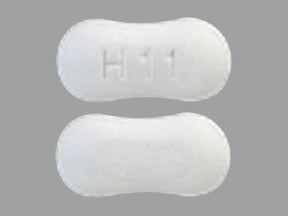
My prescription
Edit
200MG, Hydroxychloroquine (60 Tablets)
Select pharmacy

CVS
$22.80
COUPON PRICE
Walmart
$13.87
COUPON PRICE
Walgreens
$19.02
COUPON PRICE
Albertsons
$24.73
COUPON PRICEHydroxychloroquine savings card
Show this card to your pharmacist
Walmart
$13.87
BIN
ID
PCN
GRP
019876
LH5C7BC43D
CHIPPO
LHX
Powered by
More prescriptions for rheumatoid arthritis
More prescriptions for rheumatoid arthritis
Price history for Sovuna (brand) & Hydroxychloroquine (generic)
60 Tablets, 200MG
Average retail price for Sovuna
Average retail price for Hydroxychloroquine
Average SaveHealth price for Hydroxychloroquine
Our price history data is based on aggregated prescription data collected from participating pharmacies in America. Our prescription data updates daily to reflect the latest price changes. If you notice a missing data point, it means there wasn't sufficient data available to generate a monetary value for that date.
We analyzed Hydroxychloroquine prices for (200MG, 60 Tablets) over the last 12 months. The average retail price was $38.39, while the average price using the SaveHealth discount card was $33.00. That's a savings of approximately 14.04% when using our Hydroxychloroquine coupon.
Compared to the generic version, Sovuna had an average price of $1998.00 over the same time period. With the SaveHealth savings card, Hydroxychloroquine is 98.35% cheaper on average than Sovuna.
*Retail prices are based on pharmacy claims data, and may not be accurate when we don't have enough claims.
Hydroxychloroquine dosage forms
Dosage Quantity Price from Per unit 100MG 10 Tablets $3.95 $0.40 100MG 30 Tablets $6.84 $0.23 100MG 60 Tablets $11.19 $0.19 100MG 90 Tablets $22.03 $0.24 100MG 180 Tablets $39.80 $0.22 200MG 60 Tablets $13.87 $0.23 200MG 30 Tablets $8.19 $0.27 200MG 45 Tablets $11.03 $0.24 200MG 90 Tablets $26.06 $0.29 200MG 180 Tablets $39.80 $0.22
| Dosage | Quantity | Price from | Per unit |
|---|---|---|---|
| 100MG | 10 Tablets | $3.95 | $0.40 |
| 100MG | 30 Tablets | $6.84 | $0.23 |
| 100MG | 60 Tablets | $11.19 | $0.19 |
| 100MG | 90 Tablets | $22.03 | $0.24 |
| 100MG | 180 Tablets | $39.80 | $0.22 |
| 200MG | 60 Tablets | $13.87 | $0.23 |
| 200MG | 30 Tablets | $8.19 | $0.27 |
| 200MG | 45 Tablets | $11.03 | $0.24 |
| 200MG | 90 Tablets | $26.06 | $0.29 |
| 200MG | 180 Tablets | $39.80 | $0.22 |
| 300MG | 20 Tablets | $19.88 | $0.99 |
| 300MG | 30 Tablets | $23.53 | $0.78 |
| 300MG | 45 Tablets | $26.15 | $0.58 |
| 300MG | 60 Tablets | $28.76 | $0.48 |
| 300MG | 90 Tablets | $42.00 | $0.47 |
| 400MG | 10 Tablets | $16.33 | $1.63 |
| 400MG | 12 Tablets | $23.07 | $1.92 |
| 400MG | 30 Tablets | $32.96 | $1.10 |
| 400MG | 60 Tablets | $39.63 | $0.66 |
| 400MG | 90 Tablets | $46.29 | $0.51 |
